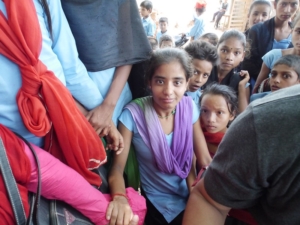 Soccer (football) is regarded as the world’s most popular sport, with massive viewing numbers globally. However, beyond the superstar players’ money and fame, soccer is a powerful tool to combat poverty and create opportunities for marginalized communities. Indeed, around the globe, grassroots soccer programs address critical social issues, from access to education and health care to social inclusion and employment. Here are five global soccer initiatives that have made measurable impacts in reducing poverty and improving lives:
Soccer (football) is regarded as the world’s most popular sport, with massive viewing numbers globally. However, beyond the superstar players’ money and fame, soccer is a powerful tool to combat poverty and create opportunities for marginalized communities. Indeed, around the globe, grassroots soccer programs address critical social issues, from access to education and health care to social inclusion and employment. Here are five global soccer initiatives that have made measurable impacts in reducing poverty and improving lives:
Street Child United
Street Child United (SCU) utilizes soccer as a platform to raise awareness about the struggles of homeless and working children, giving them a voice and helping to secure their rights. SCU’s flagship event, the Street Child World Cup, gathers thousands of vulnerable youths from countries including Brazil, India and Kenya to compete in soccer tournaments alongside workshops on legal rights and advocacy.
Beyond the competition, SCU advocates for vital identity documentation like birth certificates, essential for accessing education and health care. In recent years, SCU has helped secure hundreds of identity documents, impacting children’s ability to attend school and receive medical care. Since its creation, SCU has reached more than 1.4 million in more than 30 countries.
Common Goal
Established by Spanish midfielder Juan Mata in 2017, Common Goal encourages soccer professionals to pledge 1% of their earnings to a collective fund supporting worldwide soccer-based social initiatives. More than 200 players and managers from 48 different nationalities and 60 leagues have joined the movement, contributing to causes such as gender equality, education and social inclusion.
One of the beneficiaries of Common Goal’s funding is Soccer Without Borders in Uganda. More than 1,600 refugee and local youth are served annually by Soccer Without Borders Uganda through soccer, education and community-building programs. In 2023, one of the Soccer Without Borders initiatives, the Kampala Girls League, reached more than 1,000 girls, promoting gender equity and inclusion through soccer.
Kick4Life
Kick4Life is a charity based in Lesotho, a country facing one of the world’s highest HIV rates in the world alongside widespread youth unemployment. The program uses soccer for health education, life skills training and academic support, helping young people improve their chances of escaping poverty. Operating a soccer academy, school and social enterprise hotel, Kick4Life has directly reached more than 200,000 young people with health education programs and HIV testing services.
Additionally, more than 25,000 children have undergone voluntary HIV testing, with more than 1,000 testing positive and receiving ongoing treatment and counseling through referral networks.
Football for Peace
Football for Peace works in fragile and conflict-affected communities worldwide. It uses soccer to bridge ethnic, religious and social divides. Furthermore, Football for Peace runs “peace matches,” educational workshops and leadership camps targeting marginalized youth.
In Colombia, in partnership with the Ankle Foundation and funded by the UEFA Foundation for Children, it implemented a project to promote reconciliation between ex-Revolutionary Armed Forces of Colombia (FARC) combatants and local communities. The initiative involved 615 children of ex-combatants, providing them with soccer training and psychosocial support to facilitate social integration and prevent the resurgence of violence.
Aspire Academy
Aspire Academy, based in Qatar but with a significant scouting and outreach presence in West Africa, identifies promising soccer talent from countries. The Academy provides full scholarships, world-class training facilities, education and nutrition to talented boys from low-income backgrounds. Aspire’s Football Dreams program has scouted more than 3.5 million boys since its inception, with 18 to 20 elite scholarships being handed out annually after a rigorous selection process.
Beyond soccer, the Academy emphasizes academic education and life skills that can help propel young people into a working environment and reduce unemployment. Indeed, many who have successfully reached the Academy have secured professional contracts in Europe and Asia and actively contribute to development in their home communities.
These initiatives help bring change and fight poverty in marginalized and vulnerable regions. As one of the largest sports globally, the reach is limitless, leaving an opportunity for progression. These initiatives are just five examples.
– James Harwood
James is based in England, UK and focuses on Good News and Global Health for The Borgen Project.
Photo: Pexels

